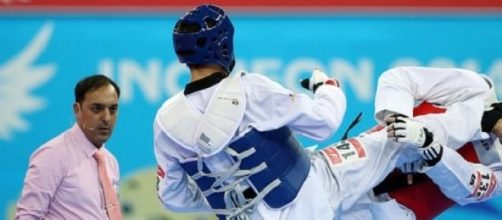Aaron Cook may be one of the world's best taekwondo exponents, but his treatment by Great Britain, particularly in light of his omission from Team GB at the London 2012 Olympics, has left him believing that his future aspirations depend on a somewhat controversial change of allegiance to another country. He is currently seeking a move to represent Moldova in the sport, despite having no connections with the country whatsoever. The move may yet be blocked though by the British Olympic Association (BOA), although even if he remains eligible to represent Great Britain, there seems to be no certainty that he would be selected for the Olympics of 2016 by them.
The controversial move by Cook brings into sharp focus the ongoing issue that many leading athletes face in sport, when balancing their own personal goals and ambitions with those of the governing body of a nation. With only a limited time for many to achieve their goals in sport, not being selected when fit and able to compete represents a barrier to the athlete's progression. Many athletes in other sports have opted to change their allegiances to further their opportunities going forward, often through the utilisation of distant relatives that were born in the country they are seeking to form a connection with or through marriage to a person from that country.
The Republic of Ireland's football team in the days of Jackie Charlton in charge, was a prime example with many more in the sport of athletics, such as Fiona May who swapped her long jumping days for Britain in favour of a move to Italy after her marriage to an Italian citizen, leading to two World outdoor titles and an Olympic silver medal.
Others have had their qualification rushed through after making their intentions to switch allegiance clear, such as occurred in the Zola Budd situation, or served a set period of time playing / living in another country before being allowed to represent them. Eduardo de Silva was such a footballer, being born in Brazil but becoming a Croatian citizen in 2002 and making his debut for the senior side two years later.
Cook's own situation is slightly more complicated than previous cases though. Although still only 24-years-old, he represented GB at the 2008 Olympics in Beijing as a teenager and after fighting admirably, was tipped to be a star of future Olympic Games, perhaps even the champion elect.
He was overlooked for selection in 2012 though in the 80kg division, despite being world ranked number one, as GB opted instead to select Lutalo Muhammad who won the bronze medal. Cook had already quit the British programme the year before and after his non-selection decided to compete for the Isle of Man, something that he has been doing since 2013.
A leading Moldovan billionaire called Igor Iuzefovici, the president of the taekwondo federation in the country, has approved Cook's switch and provided funding in support of it, clearly identifying a rare opportunity for a medal chance at the Olympics for his nation. Cook already has his Moldovan passport as a result.
There may yet be a block to the move from the BOA, who would not wish to lose the availability of an athlete of his medal-winning calibre permanently and are unclear whether the IOM switch invalidates the Olympic Charter clause, allowing an athlete to compete
